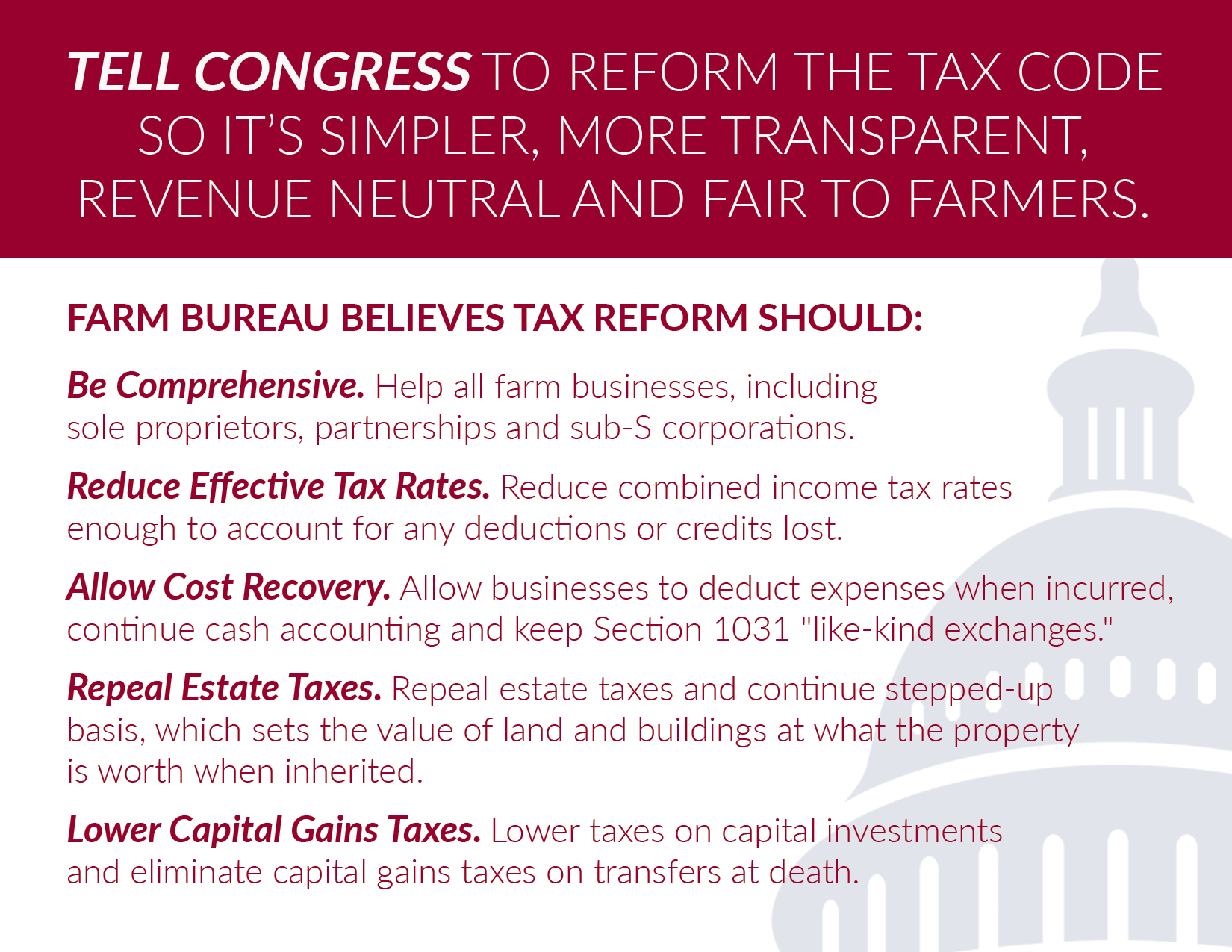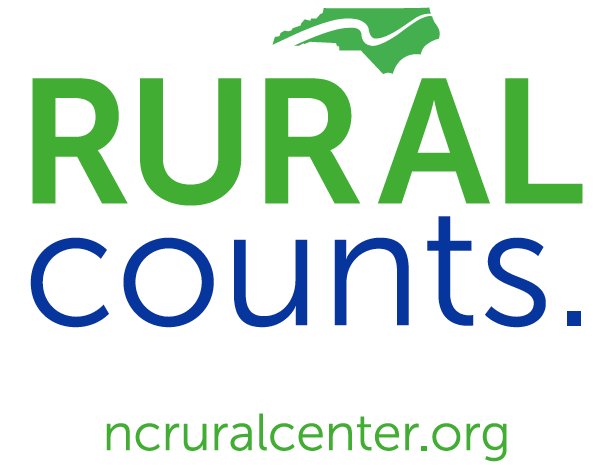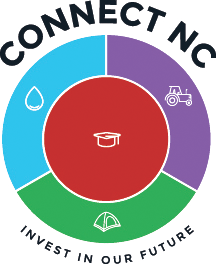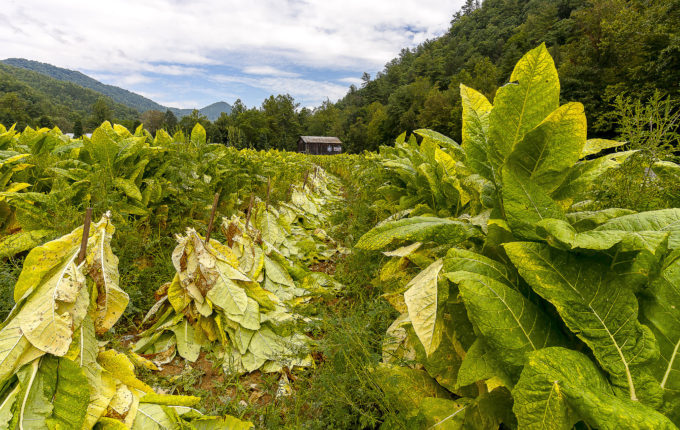A month ago, farmers scored an important victory when the North Carolina Supreme Court issued an opinion in the case of Kornegay Family Farms v. Cross Creek Seed Co. It hasn’t gotten much media attention, but Kornegay is a significant case for North Carolina’s farm families, so let’s take a moment to break it down — in both legal terms and layman’s terms.
 Taxes / US Government
Taxes / US Government
With Congress back in their districts for August Recess, we thought it’d be a good time to talk about a some federal issues that are a high priority for Farm Bureau. First up this week: tax reform.
Congress is starting to get serious about tax reform. Both the President and leaders in Congress say they want to develop a tax reform plan this fall. But what will it look like? Will it include the things farmers need to be successful?
Agriculture operates in a world of uncertainty. From unpredictable commodity and product markets to fluctuating input prices, from uncertain weather to insect or disease outbreaks, running a farm business is challenging under the best of circumstances. Farmers need a tax code that recognizes their unique financial challenges.
Farm Bureau supports replacing the current federal income tax with a fair and equitable tax system that encourages success, savings, investment and entrepreneurship. We believe that the new code should be simple, transparent, revenue-neutral and fair to farmers.
 Agriculture / Economy
Agriculture / Economy
Written by Jason Gray, Senior Fellow of Research and Policy at the North Carolina Rural Center
Connection to place and land is the heart of rural North Carolina. It is what defines rural from urban. It also reflects the positive connection of what we do to where we live. Rural work and culture is not, as some would have us believe, “nonurban” – a null set waiting to become something else. The rural life has inherent worth and value.
Agriculture is a major expression of this worth and value. The North Carolina Rural Center believes that the sustainable, productive use of land, timber and marine fisheries is one of the defining characteristics of rural life, despite the inherent physical and financial challenges. North Carolina’s strategic location in the middle of the eastern seaboard places its agricultural production near a large percentage of the country’s population. The topographical variety and temperate climate makes North Carolina an agriculturally diverse state, second only to California. One of the greatest job creation opportunities available to rural North Carolina is the focused effort to increase the amount of value-added production that occurs near where the product is grown. Continued good stewardship of our state’s immense natural resources affords us the opportunity to maintain a desirable quality of life.
In April of this year the Rural Center released a ten point advocacy package. More than just a policy advocacy package to engage state and federal policy makers, it is also a statement of what we believe works. Advocacy point #8 is Develop Opportunities for Agriculture and Natural Resources, including Biotechnology and Value-Added Food Processing. We identified the following sub-strategies to do this:
 State Government / Taxes / US Government
State Government / Taxes / US Government
Tax Day is right around the corner, and people from all across the country and from all walks of life are working through the complex and confusing process of filing their taxes. Like everyone else, farmers (and their tax professionals) have to work through a maze of rules and regulations to complete their returns. As Tax Day approaches, let’s take a moment to make some observations about farmers and taxes.
Last week, we explained why the timing is right for the Connect NC bond. This week we want to talk about a couple of the projects included in the bond that are important for North Carolina agriculture.
Those projects are the Plant Science Initiative at NC State University and a new, co-located laboratory facility for the NC Department of Agriculture and Consumer Services (NCDA).
But first let’s take a moment to consider why the General Assembly included these agriculture-based projects in the bond package. Agriculture is our state’s number one industry, generating about $78 billion a year. Nearly one out of every five jobs is related to agriculture. Our state leaders know that a thriving agriculture economy means a thriving North Carolina economy.
And so they included these two major agriculture investments in the Connect NC bond.
 The Connect NC bond is coming to a ballot box near you on March 15th! That’s right, the $2 billion bond referendum will be on the ballot when you vote in North Carolina’s primary election. Some of you probably know a little bit about the bond, but many of you may not.
The Connect NC bond is coming to a ballot box near you on March 15th! That’s right, the $2 billion bond referendum will be on the ballot when you vote in North Carolina’s primary election. Some of you probably know a little bit about the bond, but many of you may not.
So what is the Connect NC bond, why do we need it, and how does it work?

